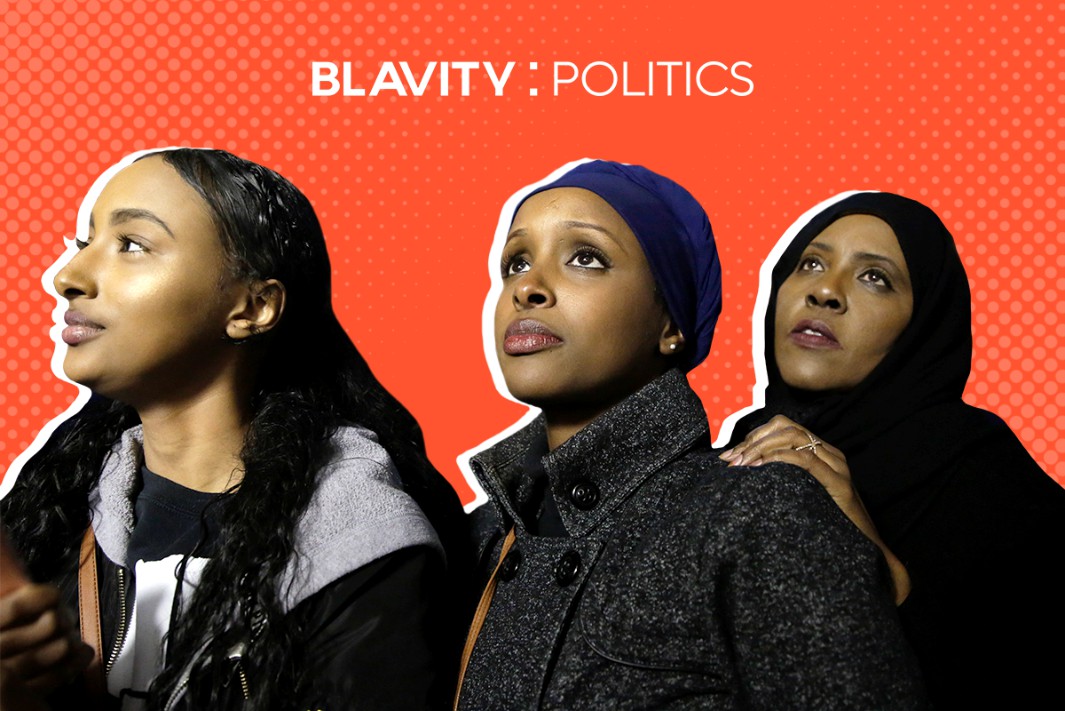In recent weeks, immigration advocates have been seeking the public’s help in pushing for the release of Abdikadir Mohamed, a United States legal permanent resident from Somalia. Mohamed has been detained since December 2017 as a result of President Trump’s executive order most popularly known as the Muslim ban.
According to the “Bring Abdi Home!” petition created by Families for Freedom, Mohamed was on his way home to reunite with his wife and children in Ohio after passing immigration inspection and being properly admitted into the country at JFK airport. Despite this, Customs and Border Patrol (CBP) agents approached him and subsequently interrogated him for 15 hours without an interpreter. Since then, Mohamed has been held by Immigration and Customs Enforcement (ICE). The petition goes on to note that while in ICE custody, Mohamed has contracted tuberculosis, yet has been denied proper medical care.
On April 10, Representatives Ilhan Omar, Judy Chu and Senator Chris Coons introduced the National Origin-Based Antidiscrimination for Nonimmigrants Act (NO BAN Act). The bill follows previous congressional efforts, such as the No Ban on Refugees Act, to counter the administration’s ban on foreign nationals from Muslim majority countries, one of their many anti-immigrant policies. The bill would overturn each version of the ban. It also explicitly prohibits discrimination based on religion. To these ends, the NO BAN Act attempts to limit similar executive overreach in the future. The experience of Abdikadir Mohamed and his family amplify the necessity of congressional action on these Islamophobic and anti-Black immigration policies.
To recap, the executive order, originally signed in January of 2017, banned foreign nationals from seven Muslim-majority countries, which suddenly left visitors, refugees, students and many others stranded. However, after intense public pushback and several court decisions, the administration settled on a revised version that targeted Somalia, Libya, Yemen, Syria and Iran. North Korea and Venezuela are also included in the latest version, but these additions have been noted as superfluous, since North Korea already accounts for few visa applications, and Venezuela’s ban is limited to certain government officials. In June 2018, the Supreme Court upheld the administration’s latest version in a 5-to-4 decision.
The implications of the No Ban Act are significant to American Muslim communities, including African and Afro-Arab families. When considering the ban in all its versions, continental Africa has been a central target of the ban, with its inclusion of Chad and Sudan in addition to Somalia and Libya. Afro-Arab communities in places such as Yemen and Iran also bear the weight of this policy decision. It is critical to emphasize that the convergence of Islamophobia and anti-Blackness in U.S. immigration policy results in a perpetual “outside” status. This process is dependent on a long history in the United States, which treats Black Muslims as marginal to the American experience, despite their established presence as part of both African American and immigrant communities. Black Muslims in the U.S. has played an important role in pushing back against subjugation, especially as it relates to the Black community at large.
Representative Ilhan Omar was proud to join her colleagues in Congress to introduce the No Ban Act. Omar came to the United States at age 12 as a Somali refugee. Currently, she is one of the first Muslim women in Congress and a dynamic member of the progressive wing of the Democratic Party.
“My birth country is now on the so-called list of countries that are banned…I think about the little Ilhans, who, like me, would also like to experience the American dream. They will no longer be able to fulfill that promise,” Omar stated during the April 10 press conference.
Rep. Ilhan Omar decries Pres. Trump's travel ban: "My birth country is now on the so-called list of countries that are banned…I think about the little Ilhans, who, like me, would also like to experience the American dream. They will no longer be able to fulfill that promise." pic.twitter.com/X4VJ64q1qq
— ABC News (@ABC) April 11, 2019
Omar has been a vocal critic of the Trump administration’s xenophobic policies, and has continued to shine a necessary spotlight on persistent Islamophobia in the United States. As a Black Muslim woman who proudly wears a hijab, Omar has been the target of much of this vitriol, especially since her rise to Congress has made her a well-known national figure. Since last Friday, vile Islamophobia driven by the Trump administration has received renewed attention as a result of the president’s endorsement of these sentiments via Twitter, which many have derided as an incitement to violence against Omar.
In this context, the Trump administration’s Islamophobic and anti-Black immigration policies highlight the level of exposure and endangerment of American Muslim’s and their families, making the introduction of the No Ban Act not only a procedural necessity but a critical counter.
Like this content? Now check these out:
7 Ways You Can Help Black and Brown Immigrants Being Terrorized By the Trump Administration
Democratic Lawmakers Introduce Three New Bills In The House As A Rebuke To Trump's Immigration Policy
African Immigrants Experienced Horrific Abuse While Detained In ICE Detention Center Claims New Report
